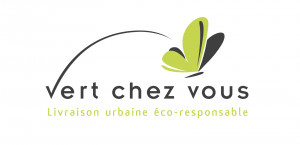Delivering without polluting is the challenge for the city of tomorrow. Faced with strong growth in the e-commerce sector, and challenged by new consumer habits, urban logistics is a subject at the heart of development and city planning issues. Valérie Berland, Director of Development at Vert Chez Vous, a subsidiary of Labatut Group, takes stock of goods transport in urban centers, and discusses the need to develop measures to further encourage the use of clean transport.
The e-commerce boom
The boom in e-commerce and consumer demand for an immediate service offer has resulted in a multiplication in the number of deliveries and therefore the number of vehicles in town. In July 2015, the Senate Commission of Inquiry into the Economic and Financial Cost of Air Pollution announced a global cost of over 100 billion euros a year in health damage to buildings, ecosystems and agriculture in France. Although transport accounts for only 27% of total GHG (greenhouse gas) emissions in France, its main impacts are global warming via CO2 emissions, congestion in city centers affecting the quality of life of residents, and particulate emissions posing a public health problem.
Regulations
French regulations, notably the Loi de Transition Énergétique (Energy Transition Law ) published in August 2015, the decree defining Zones à Circulation Restreinte (Restricted Traffic Zones) published in June 2016, and the new nomenclature classifying vehicles according to their level of emissions of atmospheric pollutants, have recently defined the regulatory framework for the implementation of local policies favoring the circulation of less polluting vehicles in cities. In Paris, for example, the Merchandise Regulations governing transport, delivery and collection for all transport professionals are currently being amended to encourage greater use of clean transport following the recent regulatory changes mentioned above.
Green growth
At a time when the trend is towards green growth, so-called sustainable development and the "slow economy", green transport - through the use of clean vehicles, the pooling of goods flows and the optimization of delivery rounds - is the answer to these new challenges facing the transport and logistics sector.
As the regulatory framework is still too unrestrictive, it is today's private-sector principals, through their strategic sustainable development policies, who are working to promote development and innovation in the green transport sector.
About Vert Chez Vous (Labatut Group)
Founded in 2011, Vert Chez Vous specializes in eco-responsible urban logistics.
Faced with the profound changes in urban goods transport due to new regulations, Vert Chez Vous is developing a model based on the link between urban and peri-urban logistics capacity and the use of clean vehicles. Vert Chez Vous has a unique service offering a wide choice of vehicles powered exclusively by electricity and NGV (Natural Gas Vehicle), with the aim of reducing greenhouse gas emissions in urban centers.




![[TRIBUNE] Delivering without polluting: the challenge of tomorrow's city](https://www.labatutgroup.com/wp-content/uploads/2017/01/Image-article-livrer-sans-polluer-1-1740x700.png)




